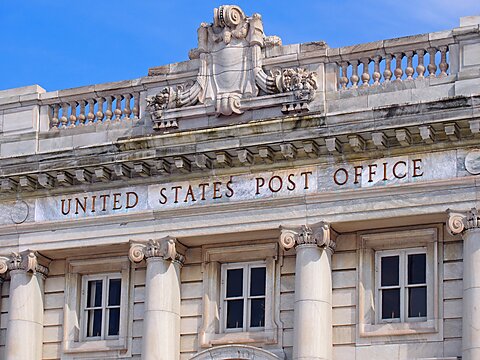President Donald Trump has reportedly shown a strong interest in privatizing the US Postal Service (USPS). Proponents of the USPS applaud its mandate to provide mail service to every American at uniform rates; critics claim it is less efficient than private competitors and no longer financially viable (if it ever was).
From its inception, the USPS was intended to be a public good, not a profit-making entity. Indeed, in 1958, federal law declared it “clearly not a business enterprise conducted for profit.” But non-profits should not be financial black holes, and universal service should not require billions in annual losses, as demonstrated by private providers.
At present, the USPS is a failing monopoly. Title 39 of the US Code hinders private carriers’ ability to compete by requiring weight minimums and USPS approval for packages. Additionally, only USPS may use mailboxes. The USPS also receives substantial financial aid from taxpayers: $120 billion since 2020. Despite this legal and fiscal aid, USPS has run a deficit every year since 2007, accumulating a total loss of $108 billion. And service quality continues to decline—between 2022 and 2024, the percentage of packages delivered on time fell substantially.
A possible response to these financial difficulties is the removal of rules that make the USPS less profitable. The USPS must offer reduced postage rates for certain users, such as non-profits, and its uniform rate requirement means serving remote areas at the same price as cities. Repealing these restrictions would allow USPS to be more competitive.
An even better response is to privatize the USPS. This would eliminate its uniform price and service mandate and allow it to close unprofitable locations. Privatizing would also eliminate restrictions on private carriers’ activity, enhancing their efficiency.
A key aspect of this privatization is that it must be complete, or nearly so. Since Britain sold a majority stake in its national postal service, the share price has fallen about 25 percent. But Royal Mail failed to eliminate the barriers that made it unprofitable, such as uniform pricing. Mail services such as FedEx and UPS show that private mail couriers can function effectively.
Ultimately, the case for privatization is one of efficiency, competition, and fiscal responsibility. By privatizing the USPS, the US could foster a competitive, market-driven postal industry that better serves consumers and taxpayers alike.
This article appeared on Substack on February 13, 2025. Jonah Karafiol, a student at Harvard College, co-wrote this post.

